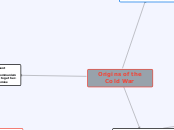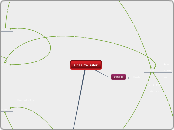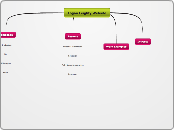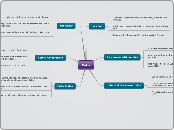Origins of the Cold War
The Breakdown of the Great Alliance
Superpowers rivalry and self interests
Post WW2 Environment in Europe
USSR emerges as a superpower
Why did it emerge as a superpower?
Economic reasons:
-After WW2, it replaced Germany as a main Economic power in the region and was able to support the economies of the post war EE countries
-Was able to influence economic stability in Europe
Military Reasons:
-Had the larges land army in the world
-Developed in order to defeat the germans
-France and Britain unable to defeat Germans illustrate USSR superiority
Political Reasons:
-Communism won over Fascism
-It was able to defeat the German war-machine
-Due to war losses Stalin asked for greater influence in EE Europe
USSR Political and Economic environment:
-Huge losses due to Nazi invasion: need reparations...
-Tensions with the West due to:
West intervention in Russian Civil War (Bolshevik revolution 1917) that supported the conservative forces
No formal diplomatic recognition of the USSR from the League of Nations
Appeasement of Hitler from the West (Who feared communism)
US emerges as a superpower
Why did it emerge as a superpower?
Economic reasons:
-Economically strengthened by the war
-Hat the power to guarantee economic stability in Europe
-Commitment to Free trade which allowed economic growth
Military reasons:
-US had the biggest Air force in the world
-Defeated Germany
Political reasons:
-View that capitalism won over Fascism, and was therefore the right path to peace and stability
West Political environment:
-Increasing tensions with the USSR
Nazi-Soviet non aggression pact in 1939; this allowed Hitler to focus on invading the west
-Differences in Post War objectives (Seen in wartime conferences)
Economic interests: -Economic stability in the world, to be achieved through free trade and minimum state intervention
-Need to avoid another economic crisis like 1929
Political interests: -Achieve freedom, justice and security -Spread Capitalism to promote collective security, economic integration, political determination -Democratic and liberal government
-"What's good for US is good for the rest of the world"
USSR self interests:
Economic interests: -Self sufficiency (5-years plans) -Centralised economy (Collectivisation of farms) -Need to recover from the effects of WW: reparations.
Political interests: -One party state: dominance of Stalin's party -Maintenance of power: elimination of opposition, this lead to purges, violence and fear -Need to secure borders to prevent further German invasions -Role of Stalinism: Promote communism worldwide -Spread soviet-style communism -Powerful state-security machine
Role of Ideologies (fundament different between the 2 superpowers)
-Idea that Communism and Capitalism cannot exist together
-Perceived as inevitable enemies
The USSR and Communism
Economic differences:
-No division between rich and poor
-State based industries: everything is shared
-No private property
-Everyone owns just what they need, and work for collective rather than individual benefits
Political differences:
-Single party government (Party that represents all workers)
-No individual freedoms needed
The US and Capitalism
Political Differences:
-Government chosen from individual voting
-Individuals have rights: freedom of speech, press
Democratic and Liberal Government
Economical differences
-Individual work and competition are valued
-Minimum state interference: Free trade etc..-Individual reward through work
-Private property is valued









